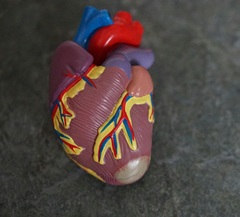 Prophylactic implantable cardioverter defibrillator (ICD) therapy does not appear to reduce mortality in patients with a prior myocardial infarction (MI), persistent moderate left ventricular (LV) systolic dysfunction and abnormal electrocardiogram (ECG) markers, according to late-breaking research presented at the 2025 European Society of Cardiology (ESC) congress (29 August–1 September, Madrid, Spain).
Prophylactic implantable cardioverter defibrillator (ICD) therapy does not appear to reduce mortality in patients with a prior myocardial infarction (MI), persistent moderate left ventricular (LV) systolic dysfunction and abnormal electrocardiogram (ECG) markers, according to late-breaking research presented at the 2025 European Society of Cardiology (ESC) congress (29 August–1 September, Madrid, Spain).
“From earlier studies, we knew that the risk of death was high after an MI, notably among patients with persistent, moderate LV systolic dysfunction and ECG markers associated with ventricular arrhythmia risk,” said principal investigator Derek Exner (Libin Cardiovascular Institute, Calgary, Canada), explaining why the REFINE-ICD trial was conducted. “We tested the hypothesis that an ICD may help these patients live longer than those who receive optimal medical therapy alone.”
The open-label, investigator-initiated REFINE-ICD trial was conducted in the USA, Canada, Europe, Middle East and Africa. In total, nearly 2,000 patients with a prior MI (≥2 months) underwent ambulatory ECG testing to assess two markers of ventricular arrhythmia risk: heart rate turbulence and T-wave alternans. Of these, 597 patients with LV ejection fraction (LVEF) 36–50%, impaired heart rate turbulence and abnormal T-wave alternans were randomised to an ICD added to medical therapy, or medical therapy alone.
The mean age of the patients was 65 years and 19% were women. Overall mortality was higher in patients with both abnormal ECG markers compared to those without (hazard ratio [HR], 2.59; 95% confidence interval [CI], 1.97–3.40; p<0.001).
During mean follow-up of around 5.7 years in randomised patients with abnormal ECG markers, total mortality was not reduced with ICDs: 24.5% of patients died in the ICD group and 21.3% died in the control group (HR, 1.07; 95% CI, 0.77–1.5; p=0.69). Almost half of the deaths (47.4%) were adjudicated as non-cardiac deaths. Cardiac mortality was not reduced in the ICD group versus controls (8.8% vs 7.6%, respectively; HR, 1.11; 95% CI, 0.63–1.945). Sudden cardiac death occurred in 2.6% of patients in the ICD group and 3.8% in the control group (HR, 0.66; 95% CI, 0.27–1.62).
“In this trial, patients with a prior MI, persistent moderate LV systolic dysfunction and ECG markers of ventricular arrhythmia risk had twice the incidence of death as similar patients without these risk markers,” Exner added. “Although, overall, the risk of death was lower than expected and half of all deaths were non-cardiac. Importantly, ICD therapy did not reduce total mortality, cardiac death and sudden cardiac death. Further research efforts are needed to better manage these patients.”









